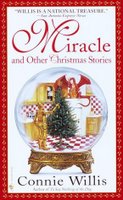Sweet Marion Warren has unselfishly put her life on hold to care for her ailing parents-- first her mother and now her father. When her father dies, she is sad and lonely, but looks forward to pursuing her dreams of getting an education and perhaps becoming a teacher. They are not a wealthy family, but her father had intended to provide for her (knowing her ambitions and intelligence), but his will gets "lost" (with the help of a selfish sister-in-law). Marion lives for a while with her brother and his family, and even though she loves them and their children, they treat her almost like an indentured servant. They decide to sell Marion's beloved childhood home to attain their own dream of living in the country, but Marion knows that any chance she has of education and culture is to stay in the city. So she uses her contacts at church to get a job as a sales girl at a store, rents a cheap apartment, and stays in the city on her own. Her one self-indulgence on her meager income is to get season tickets to the symphony, and when she goes she discovers a single, long-stemmed dark crimson rose on her seat. At first she can't believe it's really for her, but then she finds a new rose every time, and like the music, she treasures the roses as one of the small bits of beauty in her bleak life. Marion doesn't learn for quite a while what the reader has inklings of much earlier-- that her innocence and real interest in culture and music has intrigued a young man who enjoys watching her at the symphony, and who slowly begins to get to know her through other avenues and mutual friends.
This is a sweet, romantic story-- but from a modern perspective, it's hard not to think of Marion's admirer as a stalker. He watches her at the theater, he sends flowers to her address and cleverly gets the delivery boy to find out her name; one night when it's pouring down rain after the symphony, he rides the same trolley home and carries an umbrella over her from her stop to her door (unseen in the dark). It's all very gallant and sweet, but seems so foreign in this day and age where a story like this would probably be much darker and scarier.
While I was reading the book, I debated with myself whether Marion wasn't too good, almost angelic. She loves caring for her dying father even though it means she has no social life and has to postpone her education. She puts up with her brother's selfishness (selling the house that was half hers, and should have been all hers if the will hadn't been lost), and even forgives her sister-in-law when she figures out what happened with the will. When Marion is working at the department store she gets to know the girls, but she's clearly different than them-- she doesn't bob her hair or wear bright lipstick or go out with the boys. The men at the store treat Marion with respect because they think she's too good for them, and the narrator pretty much says that they are right. Marion seems to always do the right thing, which does seem unrealistic, but on reflection I remembered that there are moments when she struggles-- to forgive the sister-in-law, or when dealing with the villain of the story, a spoiled, wealthy, society girl who has set her sights on the wealthy young man who begins showing an interest in Marion. I liked the fact that she does have to deal with natural, human emotions, and it makes her a little bit more accessible as a heroine.
Of course, this is really kind of a fairy tale story anyway, so I probably shouldn't expect it to be all that realistic.
There's also an interesting undercurrent about class and society. Marion's father is working-class and poor. The president of the Sunday School at their church is perfectly glad to give her a referral for a job as a shop-clerk, but he thinks that the wealthy Jefferson Lyman should be interested in his niece (a wealthy girl of his own station) and not a plain, poor girl like Marion. Likewise, some of these society girls know Marion from school (and the narrator suggests Marion's intelligence here by letting us know that she helped them with their homework), but now they hardly deign to speak to her because her clothes are out of date. However, Jeff sees that Marion is his "match" in spite of these differences, because of their shared interest in music and culture and their shared faith.
I recently got back a bunch of books that were in storage elsewhere, and decided on a whim to re-read my Grace Livingston Hill books. Hill generally wrote romance novels with a Christian flavor (the editions I have are labeled as "novels of enduring romance"), written in the 1920s and '30s, so they have a bit of a historical feel. This is a sweet and enjoyable one, although perhaps not the best, which is why I chose to read it first.
| Title: | Crimson Roses |
|---|
| Author: | Grace Livingston Hill |
|---|
| Date published: | 1928 |
|---|
| Genre: | Romance |
|---|
| Number of pages: | 238 |
|---|
| Notes: | repeat reading |
|---|







